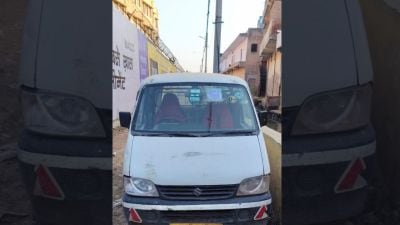Victims families file affidavits in disappearances cases in Punjab
NEW DELHI, FEB 4: The Coordination Committee on Disappearances in Punjab on February 1 filed 16 affidavits of the families of victims who ...

NEW DELHI, FEB 4: The Coordination Committee on Disappearances in Punjab on February 1 filed 16 affidavits of the families of victims who rejected the interim compensation proposed by the National Human Rights Commission for the losses they have suffered.
The affidavits were annexed to a review petition filed by petitioners Ashok Agrwaal, Nitya Ramakrishnan and Anuj Bhuwania. The remaining one affidavit will be filed by the petitioners on the date of hearing of the case sometime this month.
The fresh move by the petitioners came after the families of the victims had communicated to the Coordination Committee on their dissatisfaction with the NHRC’s inquiry into the enforced disappearnces. The families feared that the limited scope of inquiry of the NHRC would never bring out the actual facts on state excesses in Punjab during the anti-militancy drive.
The NHRC had focused only on the CBI’s list of cremations without taking into consideration other cases from rest of the Punjab and had recommended Rs one lakh as compensation.
The petitioners stated in their application that, on the 4 August, 1997, the NHRC, held that it was "designated by the Supreme Court under Article 32 of the Constitution to look in to the cases of disappearances in Punjab". The families of victims thereby were under the impression that the Commission would investigate into all matters of disappearances in Punjab, without any `territorial’ or `temporal’ restrictions.
Subsequently, the NHRC decided upon the "Scope of the inquiry" by limiting the cases to the list provided by the CBI which is of Amritsar only. The Commission held that the scope of the inquiry under the Supreme Court’s direction is limited only to those illegal killings that culminated in the cremation of 2097 bodies in the crematoriums of Amritsar district.
Most families of victims felt that this move of the Commission had only undermined the Supreme Court’s order which was directing it to look into cases of human righst violations by security forces all over Punjab in the name of anti-insurgency operations.
The amount of compensation being suggested by the State of Punjab was Rs 1 Lakh per deceased person. In addition to all other contentions, the petitioners maintained that "The amount of compensation `fixed’ by the State of Punjab is completely arbitrary. It is submitted that after having ascertained through the CBI that Jaswant Singh Khalra was illegally abducted by the Punjab Police and that, thereafter, he `disappeared’, the Supreme Court granted his widow an interim compensation of Rs 10 Lakhs. There can, therefore be no justification for granting the families of other victims of `disappearance’ any amount less than that.
The petitioners had contacted all the families whose claims have been conceded by Punjab for grant of compensation as per the rules applicable.
The petitioners have also suggested a three-fold approach to be adopted with respect to CBI’s list of illegal cremations. Firstly, for those who are stated to be "identified," the Commission, according to the petitioners, could issue notices to the families informing them of the fact that it has taken cognisance of the cremation of their kin and ask them to await till further developments.
Thereafter, the Commission may require its investigative staff to examine the facts of each case. Simultaneously, the State of Punjab may be required to provide a detailed and complete statement of the manner in which the deceased person became an unidentifid body in the hands of its police force. Further, the petioners said, “Punjab state officials should be speciically barred, on pain of punishment for criminal contempt, from approaching any member of the families of the deceased persons, for any purpose whatsoever.”
In the case of the `partially identified’, the petitioners wants the Commission to depute a special task force of its investigative wing to complete the process of identification. For this purpose, the task force should be empowered to demand all relevant records from the State of Punjab and its police forces, the application demands.
The petitioners also demand for examining some of the relevant records including the cremation ground records from each cremation ground in the three police districts mentioned above, the complete record of `daily diaries’ maintained by each and every police station in the three police districts mentioned above and the copies of `press statements’ or any other official statements issued by the State Government and the Punjab police.
The petitioners reitrated that “every efforts should be made by the Commission to ascertain the idenity of the unidentified and partially identified victims who were killed, a failure of which would help the security forces cover up the truth forever.”
The convenor of the CCDP, Ram Narayan Kumar, said: "Any compensation offered to the victims cannot be less than what the Supreme Court awarded to Jaswant Singh Khalra’s widow."
"The CBI has corroborated our allegations and the Supreme Court, concluding heinous human rights violations on a mass scale, entrusted the NHRC to examine and determine all the issues arising from the CBI’s report. For the NHRC to fail in this duty would not only be an offence to the professions of our Constitution, but also an offence to the future of our society," he added.
Photos


- 01
- 02
- 03
- 04
- 05





























